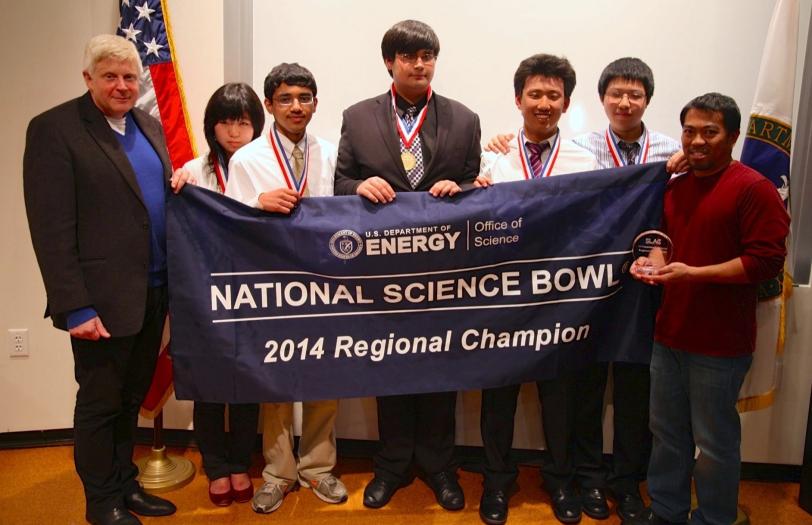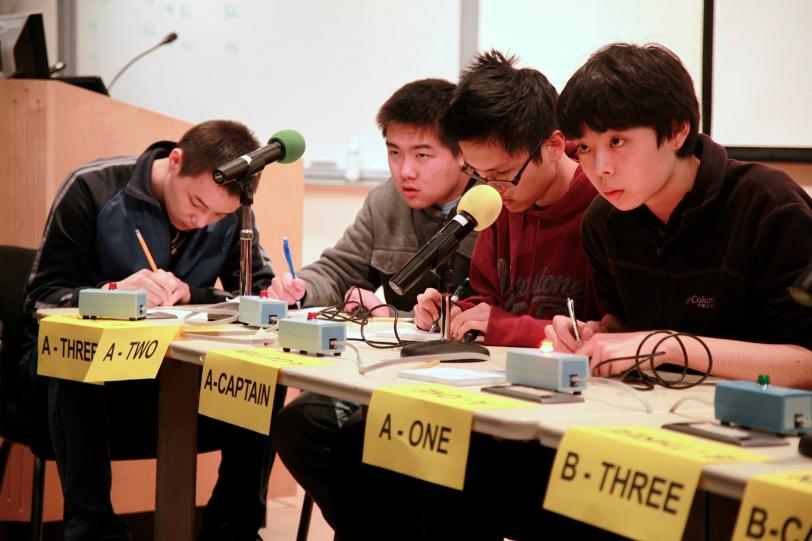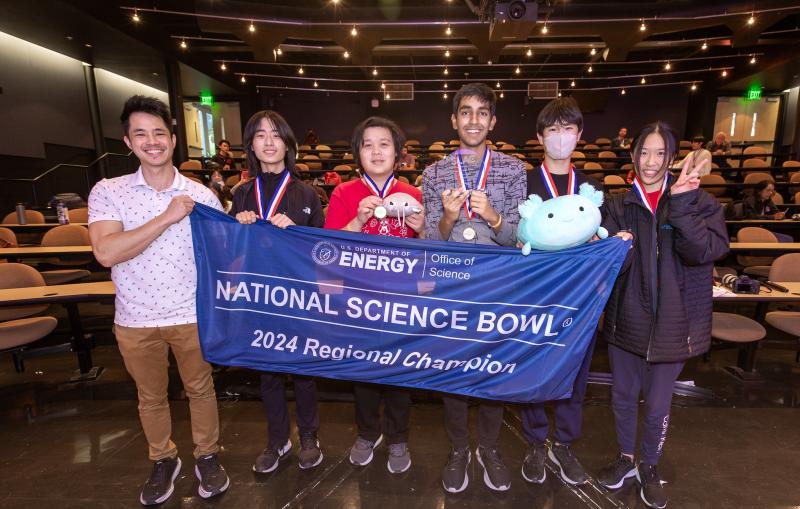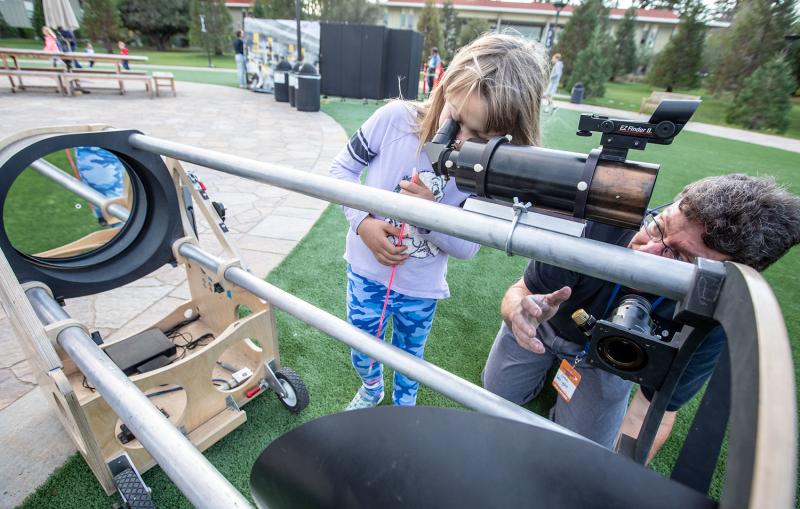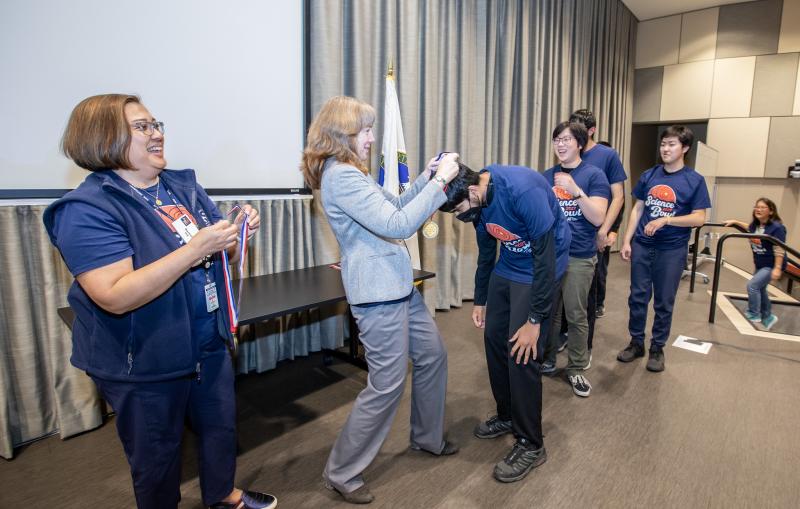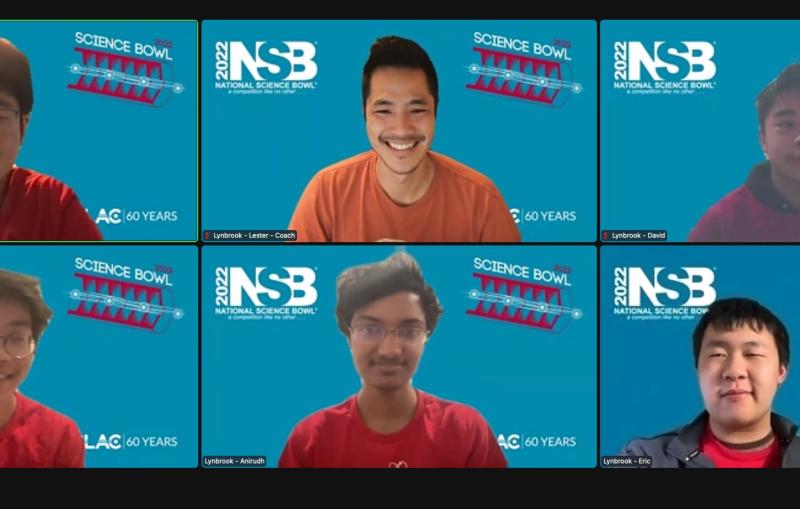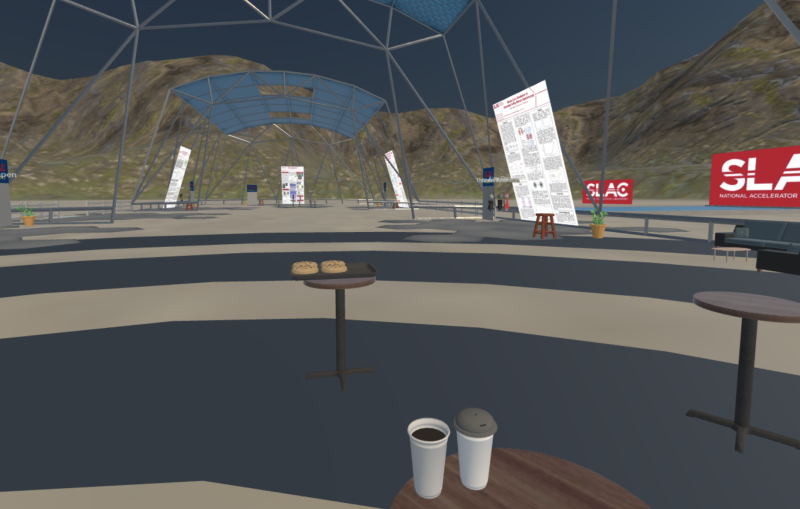Future Scientists Compete at 10th Annual Regional Science Bowl at SLAC
SLAC hosted 21 teams at the Department of Energy Regional Bay Area Science Bowl on Feb. 8. The winners from Homestead High School will head to Washington, D.C., for the national competition in April.
By Julia Goldstein
SLAC hosted 105 high school students from 21 schools at the 10th Annual Department of Energy Regional Bay Area Science Bowl competition on February 8. The winning team from Homestead High School is one of 70 regional high school teams that will travel to Washington, D.C., on April 24 for four days to compete in the National Science Bowl. Fifty middle school teams will also take part.
The DOE has sponsored the National Science Bowl since it created the competition in 1991. Students answer multiple-choice and short-answer questions from many fields of science in a fast-paced format that requires them to think quickly. Teams spend months practicing, studying both science and the competition format. This year’s questions covered biology, chemistry, physics, math, Earth and space science, and energy.
The SLAC event relies on volunteers – primarily SLAC employees and Stanford graduate students – to keep everything running smoothly. The volunteers also start months in advance reviewing science questions and answers and learning the rules of the competition, according to Farah Rahbar, SLAC outreach coordinator and organizer of the event. This year 55 volunteers served as moderators, science judges, timekeepers, scorekeepers and registration assistants for the event.
Although only five students per school were allowed to compete, Homestead High School brought its entire 13-member Science Bowl team, and even the non-competitors arrived at SLAC's Kavli Auditorium dressed for success. As one of the top-seeded teams advancing to the afternoon elimination rounds, Homestead easily defeated its opponent in the first round and advanced immediately to the final round.
The penultimate match between Lynbrook and Saratoga high schools was the closest of the afternoon. Lynbrook played aggressively, frequently buzzing in before the moderator had finished reading the question. The strategy had worked well in earlier rounds, but this time each incorrect response gave Saratoga four points and a chance to answer the question. Lynbrook finished in third place.
Homestead triumphed in the final match with a score of 118 to 32, leaving Saratoga with a second-place finish.
2014 marks Homestead’s fifth regional Science Bowl win; they most recently placed first in 2011. Homestead coach Chris Nafrada credits the students’ drive, saying he’s more an advisor than a coach because “they coach themselves.” The team members say they work well as a team and trust each other.
Working together is important. Each time an individual team member answers a four-point toss-up question correctly, the team gets a bonus question worth 10 points. They have 20 seconds to make calculations and consult each other before the team captain gives the response. Each student may not know all scientific areas well, but as a team they often come up with the right answer.
Most of the teams at the competition were from the South Bay or the Peninsula. Stanford Online High School, however, has students from all over the country, and its team included students who traveled from as far as Alaska and New York. The team didn’t make it past the round-robin competition in the morning, but the students were happy to stay until the end to watch the final matches.
SLAC Deputy Director Norbert Holtkamp presented the champions with a trophy and gave medals to the top three teams. He stressed that although “nothing beats being number one,” students didn’t need to win a competition to succeed in careers in science. Holtkamp congratulated all the teams, telling them, “You’re part of the next generation of scientists.”
SLAC is a multi-program laboratory exploring frontier questions in photon science, astrophysics, particle physics and accelerator research. Located in Menlo Park, Calif., SLAC is operated by Stanford University for the U.S. Department of Energy's Office of Science. To learn more, please visit www.slac.stanford.edu.
DOE’s Office of Science is the single largest supporter of basic research in the physical sciences in the United States, and is working to address some of the most pressing challenges of our time. For more information, please visit science.energy.gov.
